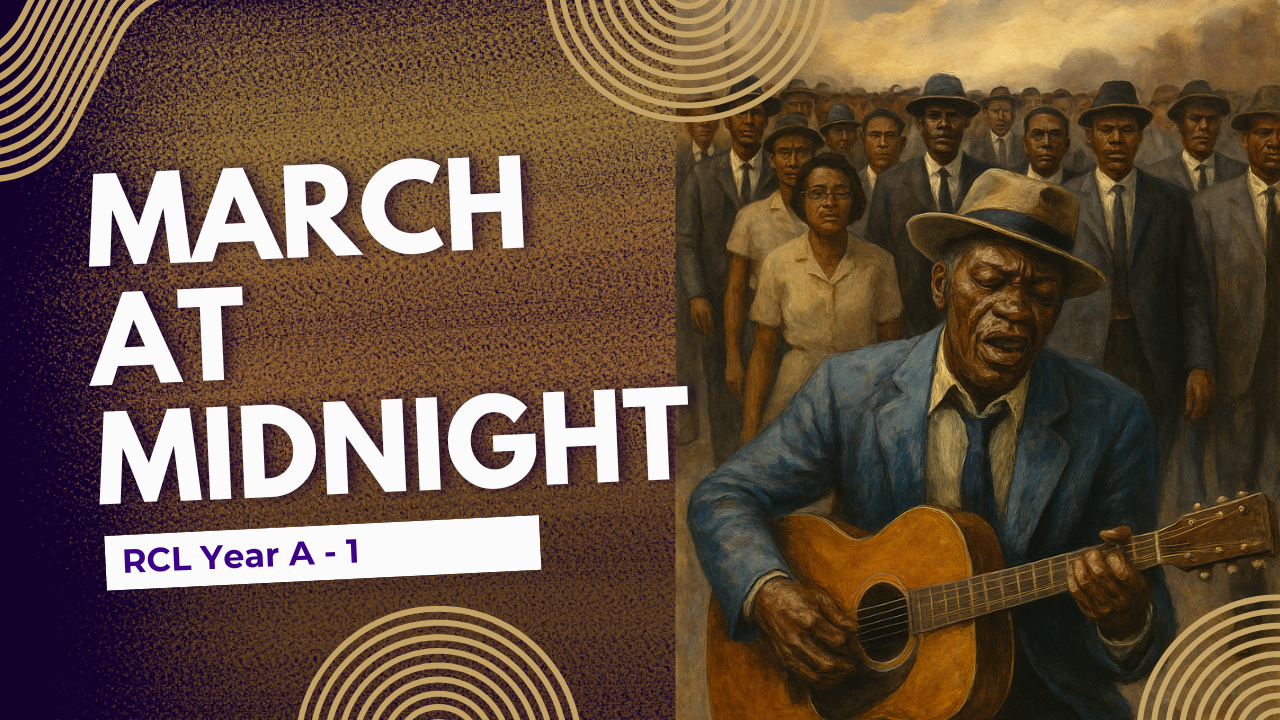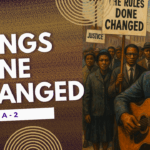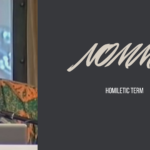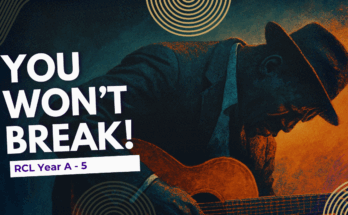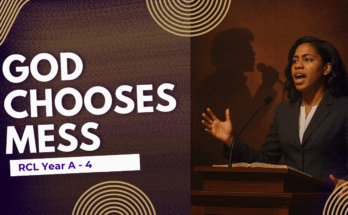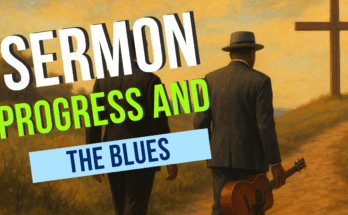As an Amazon Associate I earn from qualifying purchases.
Isaiah 2:1–5
March at Midnight
The church year don’t start at high noon.
It doesn’t begin when the sun’s shining, the bills are paid, the choir is tight, and everybody’s smiling.
Advent starts in the dark.
We step into a new season under a midnight sky.
The streets are still.
The air is cold.
And the only light you see is that little flicker from the first candle on the wreath — a stubborn flame that refuses to die.
Isaiah knew what midnight looked like.
He preached in a time when leaders were corrupt, the poor were trampled, and enemies were gathering at the borders.
Assyria was rising, breathing down their necks.
From the ground, it looked hopeless.
But Isaiah says something strange — “The word that Isaiah the son of Amoz saw…”
He didn’t just hear it. He saw it.
And what he saw didn’t match what his eyes told him.
Midnight will do that to you.
You’ve got to decide — will you believe the darkness in front of you, or the vision God put inside of you?
And that’s where the call comes in: March at Midnight.
The Groan Before the March
Before you march, you might have to groan.
That’s not weakness — that’s honesty.
The blues singer knows about that first moan before the beat drops.
It’s that deep sound from the gut that tells the truth before the music gives you hope.
Advent gives us permission to groan.
Because the swords are still sharp.
The war colleges are still teaching.
Peace is still a rumor.
Maybe your midnight isn’t about war overseas.
Maybe it’s a battle in your living room.
Maybe it’s the silence in your marriage.
Maybe it’s your child you can’t reach.
Maybe it’s that medical report that makes your stomach drop.
The Bible doesn’t tell you to fake it.
It doesn’t tell you to paste on a smile while your soul is heavy.
Advent says: name it, feel it, and still take that first step forward.
That’s why the blues fits Advent so well — it tells the truth about pain, but the rhythm keeps moving.
The guitar might cry, but the feet still find the beat.
Midnight is here… but march at midnight.
Memory Is Muscle
Isaiah’s people didn’t just need a new plan — they needed a memory.
Because faith without memory is just a wish.
But faith with memory? That’s got muscle.
“Come, let us go up to the mountain of the Lord…” — that’s pilgrimage talk.
That’s movement.
That’s the language of people who’ve traveled before and seen God keep His word.
And the Book is full of midnight memories.
Israel on Passover night, eating in haste, staff in hand, ready to walk out free.
Jacob wrestling in the dark until the sun came up, limping into his blessing.
Paul and Silas locked in jail, singing at midnight until the chains fell.
Jesus in Gethsemane, walking toward the cross while the world slept.
We’ve got cultural memories too.
Harriet Tubman walking through swamps at night, eyes fixed on the North Star, moving while the enemy slept.
The marchers in Selma, taking that bridge with nothing but a song and a hope.
Our grandmothers, humming hymns in hot kitchens and cold fields, carrying a light in their voice that no night could smother.
And every blues verse is a memory too — a testimony set to rhythm.
It says: The storm didn’t drown me.
The night didn’t break me.
The pain didn’t stop me.
I’ve seen light before — and if it found me then, it’ll find me again.
March at midnight.
Walking by a Different Sight
Isaiah doesn’t say, “We’ll walk after the sun comes up.”
He says, “Come, let us walk in the light of the Lord.”
That’s now.
That’s before the dawn breaks.
Walking by a different sight — that’s faith.
Faith is resistance.
It’s saying no to the voice that says, “Sit down.”
No to the shadow that says, “You won’t make it.”
No to despair that says, “Quit now.”
The blues knows how to do this — how to dance while the guitar cries.
How to two-step while the heart aches.
How to march across a bridge when you know the batons are waiting.
Harriet Tubman did it — with bounty hunters on her trail.
The Selma marchers did it — with troopers blocking their way.
Noah did it — building an ark in bright sunshine.
The wise virgins did it — keeping lamps full while the bridegroom was late.
Abraham did it — walking toward a land he couldn’t see yet.
That’s the kind of sight I’m talking about.
And that’s why we march at midnight.
Seeing What’s Coming Before It Comes
Isaiah’s vision is upside-down from what’s on the ground.
Mountains raised high.
Nations walking toward peace instead of war.
Swords hammered into plows.
War rooms turned into classrooms.
Advent isn’t naïve — it knows we’re not there yet.
But it refuses to let what is blind us to what will be.
It whispers — no, it declares — What you see is not all there is.
That’s why the blues and the gospel are cousins.
Both can sing in a minor key and still hold hope in the same breath.
Think of the Montgomery bus boycott — cold mornings, long walks, no sign of change for months… but they kept walking like victory was already on the calendar.
Think of the Freedom Riders — bloodied, bruised, but rolling into towns that didn’t want them, because the arc of the universe was bending toward justice.
Think of a Saturday night blues set — heartbreak in the lyrics, joy in the groove.
That’s the paradox.
That’s Advent.
That’s marching at midnight.
Until the Morning
When the money runs out — march at midnight.
When the doctor says “no change” — march at midnight.
When the friends scatter — march at midnight.
When the dawn feels far — march at midnight.
Because Isaiah’s word still rings:
“O house of Jacob, come ye, and let us walk in the light of the Lord.”
Even in the dark.
Especially in the dark.
Because the dark can’t hold forever —
and the dawn is coming.
March at midnight.
Amazon and the Amazon logo are trademarks of Amazon.com, Inc, or its affiliates.

